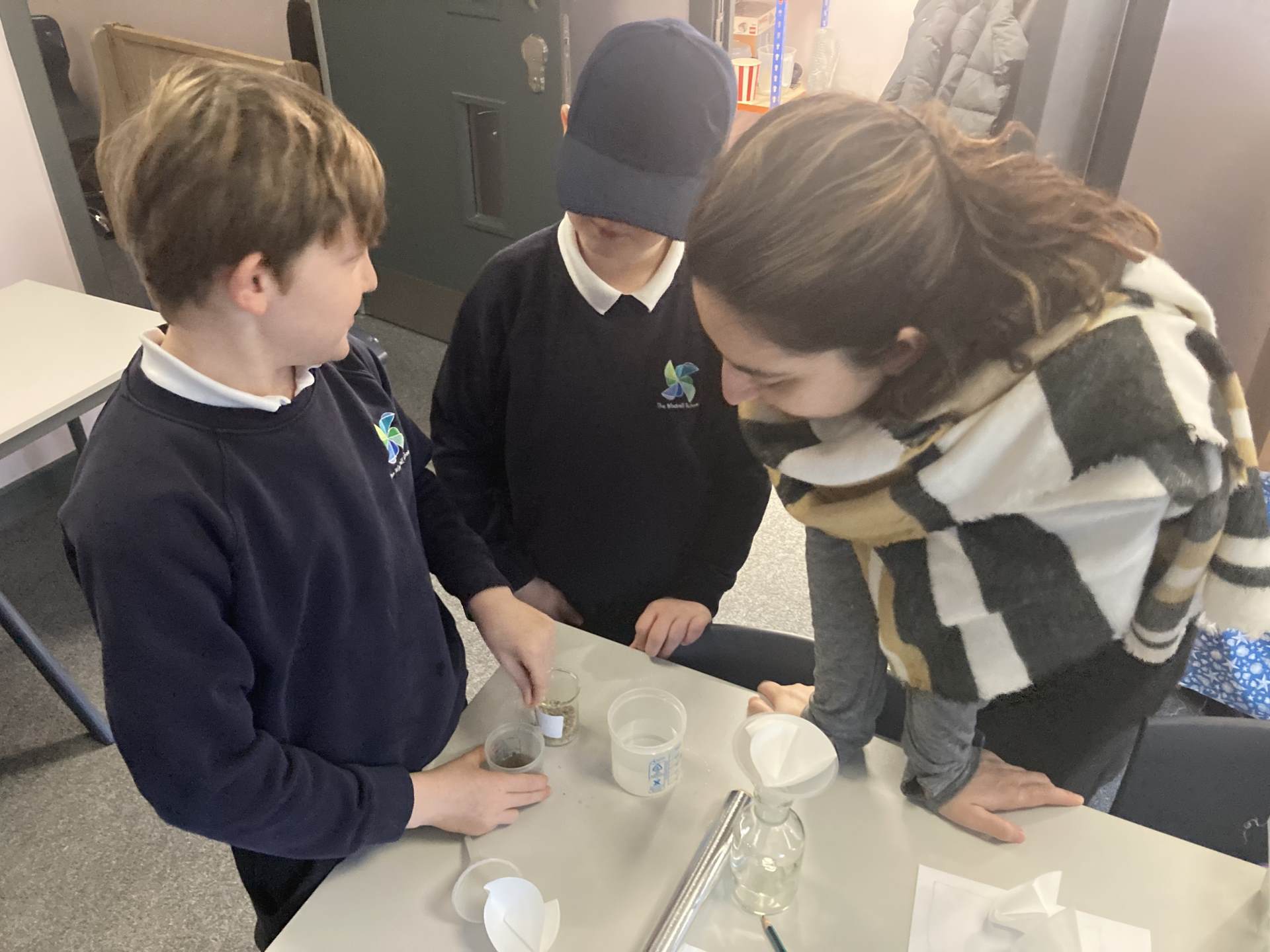Primary Science
At The Windmill School, our primary science curriculum is designed to ignite curiosity and foster a lifelong love of learning in our students. We are committed to providing a stimulating and supportive environment where every child can explore the wonders of science through hands-on experiences and inquiry-based learning.
Like our Maths, Science is rooted in the National Curriculum and guided by the White Rose framework, but is flexibly adapted to meet the individual needs and interests of our pupils.
As in all areas of learning at The Windmill School, our Science teaching is underpinned by the SCERTS framework. Activities are designed to be high-interest and low-arousal, with plenty of opportunities for movement, regulation, and sensory breaks. Pupils are gently encouraged to engage at their own pace and supported to build curiosity and confidence over time.
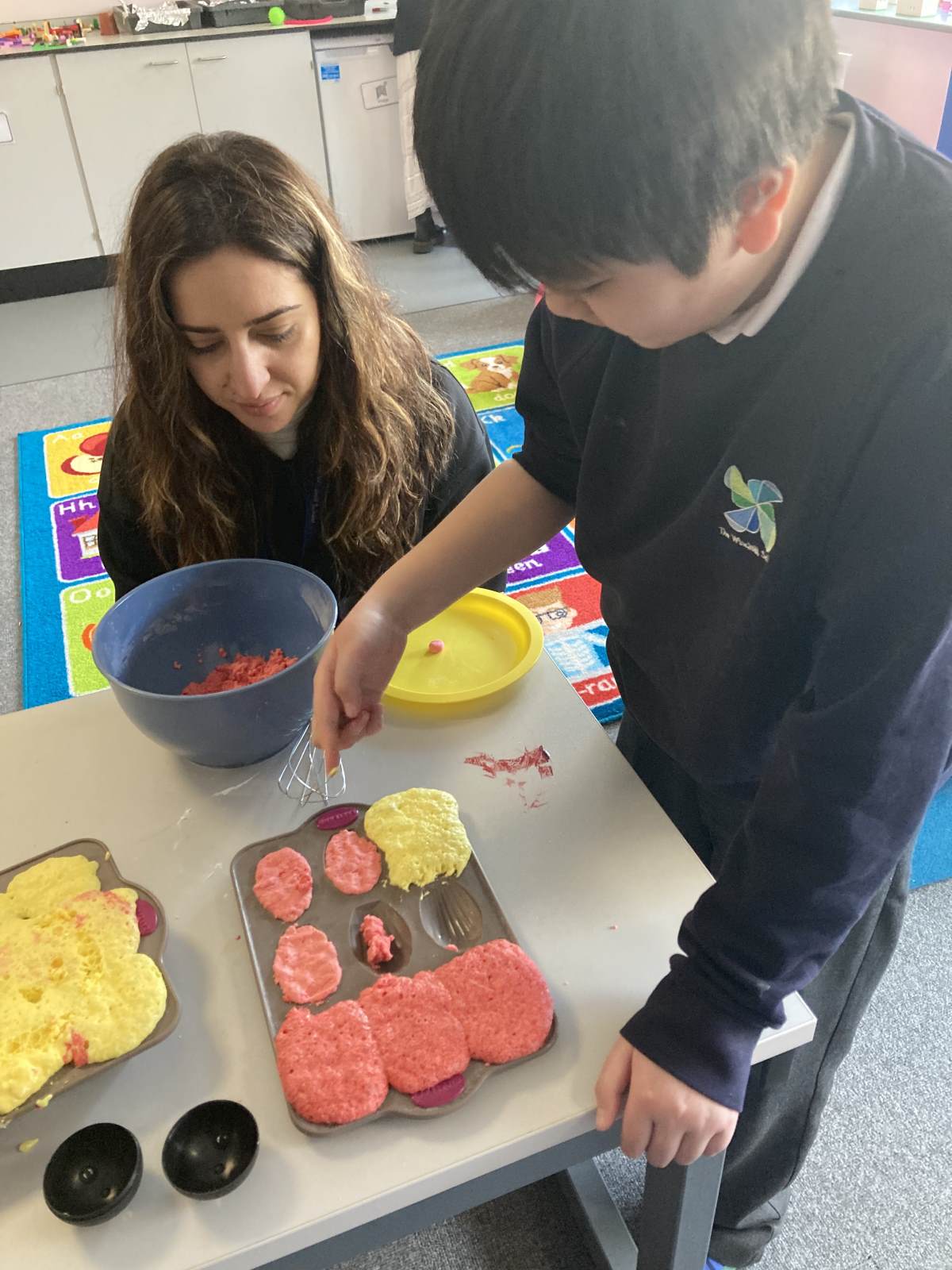
Investigating the World Around Us
Science at Windmill is all about curiosity and discovery. Learning is often linked to real-life experiences and the world around us. Pupils might explore melting chocolate in cooking, measure rainfall in Forest School, or look after plants in our horticulture garden. We also have a sensory garden on-site and two much-loved guinea pigs that children help care for, giving them a natural way to explore biology and develop responsibility.
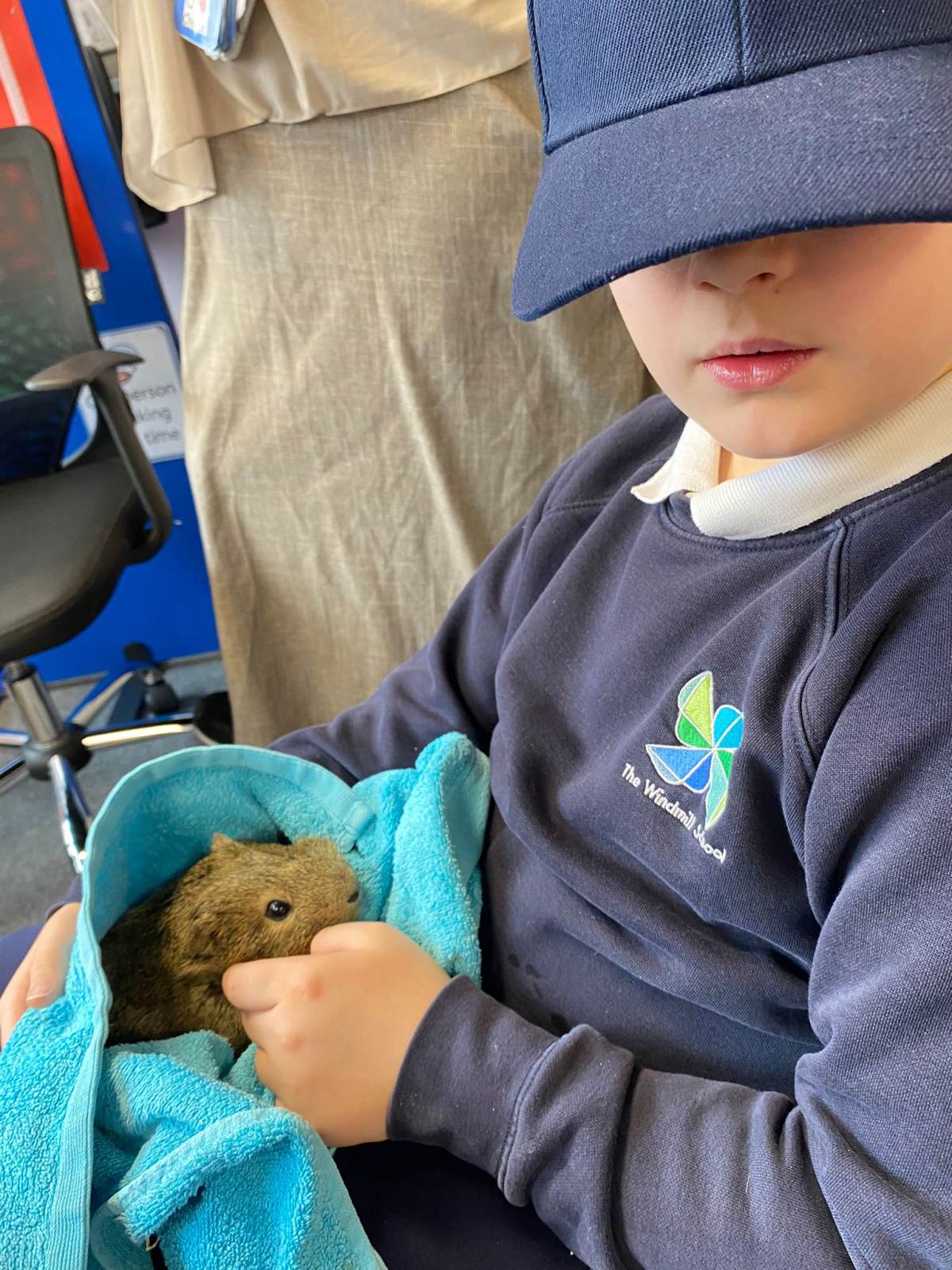
Cross-Curricular and Child-Led Learning
Science is frequently linked with other subjects to give it meaning and context. In cooking, pupils explore changes in materials and temperature; in Maths, they might collect and record data from an investigation. Drama, videos, and story-based learning are used to make abstract ideas more accessible.
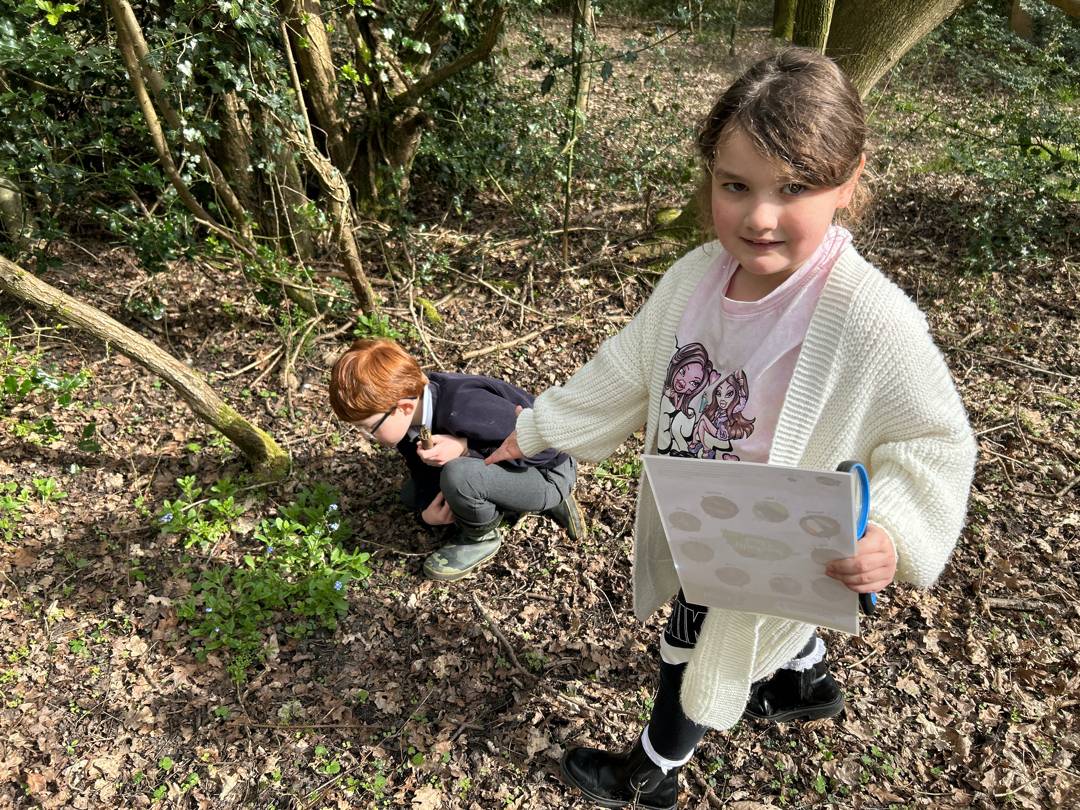
We celebrate British Science Week each year and enjoy visits from therapy dogs and trips to see the fish in our secondary department. We also embrace children’s own passions – whether it’s space, animals, or electricity – and build on these special interests to deepen engagement and motivation.
A Flexible, Supportive Approach
Every child is different, so we offer a flexible approach that allows pupils to learn in a way that suits their needs. Pupils are supported to communicate their ideas in a range of ways – through words, symbols, photos, drawing or gesture – and we always prioritise the development of functional communication within scientific learning.
Above all, our goal is to nurture a sense of wonder in the world and help each child become an active, curious learner who feels confident to explore, experiment and discover.
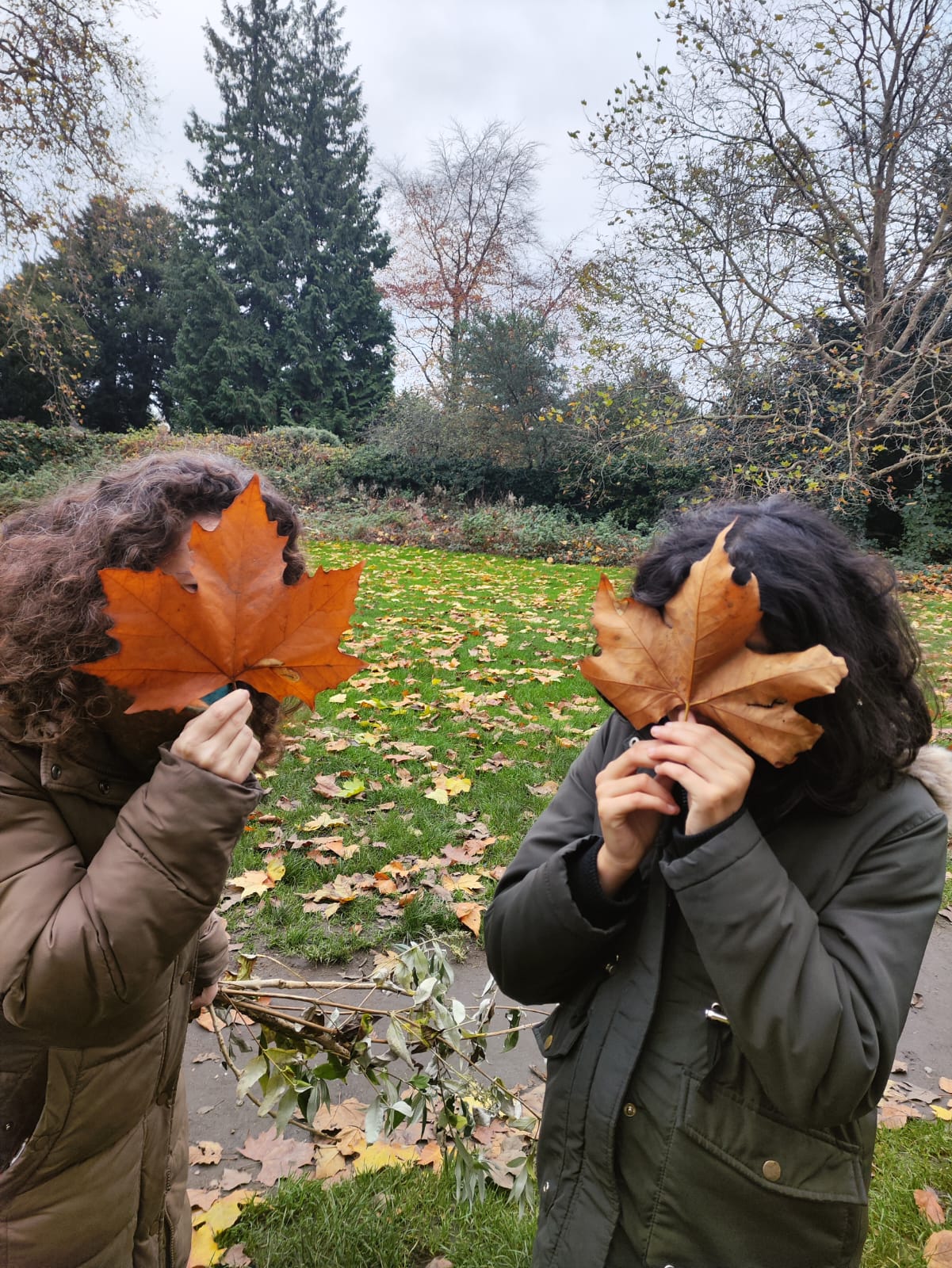
White Rose
The White Rose Curriculum ensures a comprehensive and cohesive approach to science education. It allows us to:
Build Strong Foundations: By following a structured and progressive framework, we ensure that students develop a deep understanding of key scientific concepts and principles from an early age.
Encourage Critical Thinking: The White Rose Curriculum emphasises problem-solving and critical thinking skills, enabling students to question, investigate, and draw conclusions based on evidence.
Promote Engagement and Enjoyment: Through engaging and interactive lessons, we make science accessible and enjoyable for all students, fostering a positive attitude towards the subject.
Support Individual Growth: Our approach is inclusive and differentiated, catering to the diverse needs and abilities of our students, ensuring that every child can achieve their full potential.
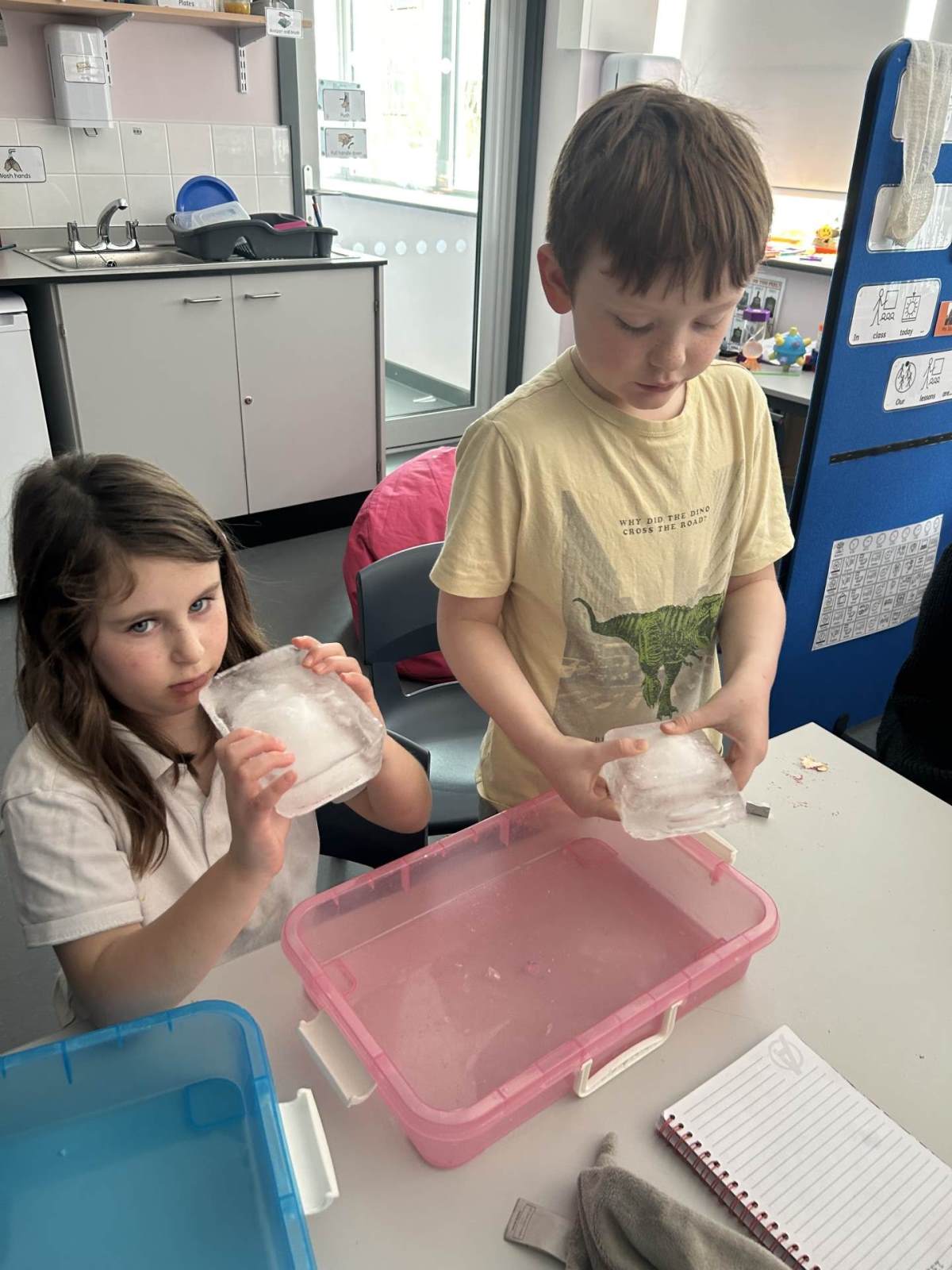
How the White Rose Scheme Works
The White Rose Curriculum uses a 'small steps' approach to teaching science, breaking down complex concepts into manageable chunks. Each step is designed to build on previous knowledge, ensuring a deep and thorough understanding of scientific principles. The curriculum covers a wide range of topics, including:
Biology: Understanding living organisms, their habitats, life cycles, and the human body.
Chemistry: Exploring materials, their properties, changes, and the basics of chemical reactions.
Physics: Investigating forces, motion, energy, light, sound, and the Earth in space.
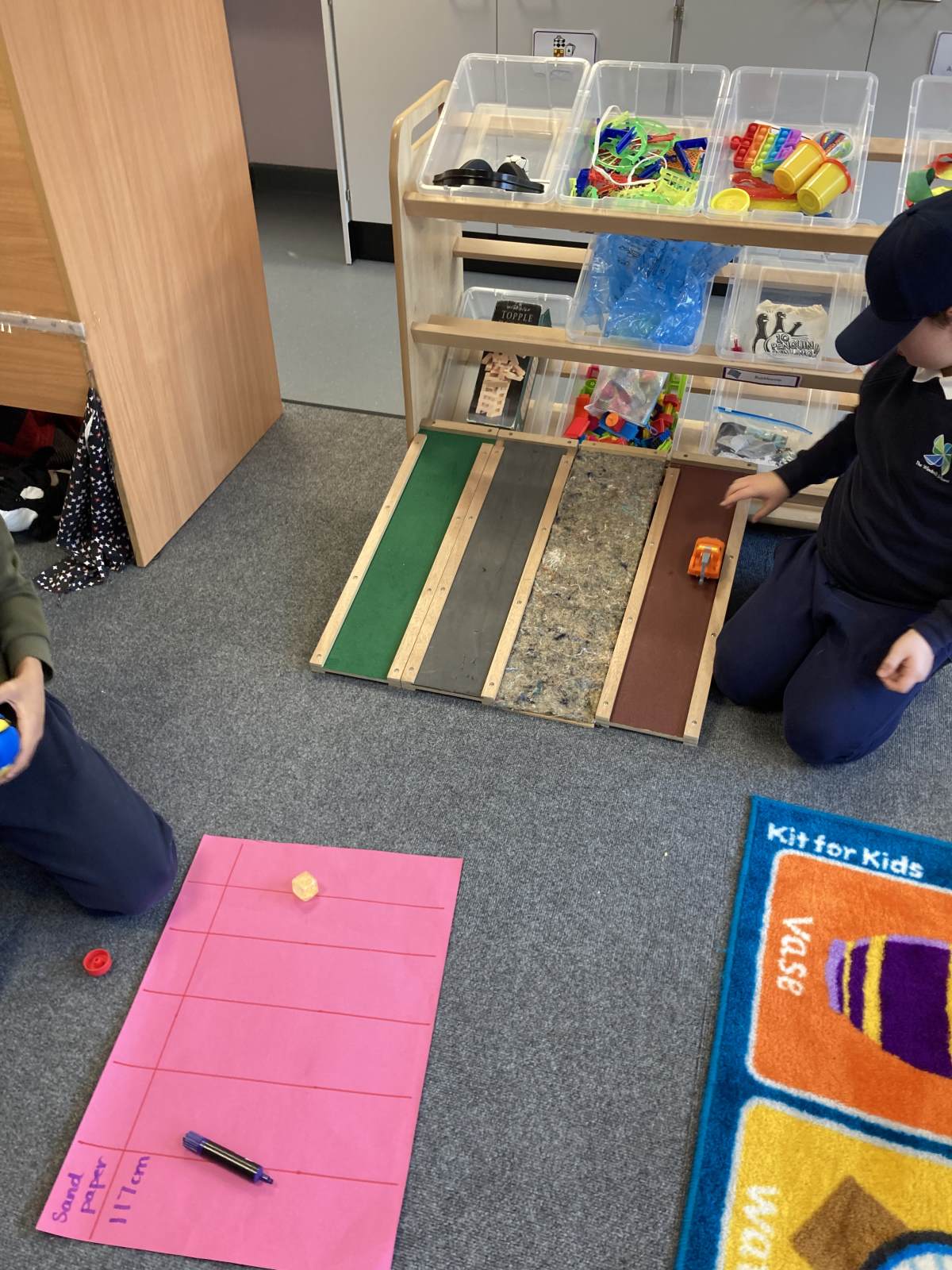
Each topic is taught through practical, hands-on activities that encourage students to engage with the material actively. The curriculum also includes detailed notes and guidance for teachers, insights on common misconceptions, key questions, and child-friendly definitions and images using visual systems and practical based activities.
Progression to Key Stage 3
As our pupils transition to Key Stage 3, we continue to build on the strong foundations established in primary. We ensure a smooth and gradual transition, allowing pupils to progress at their own pace according to their individual abilities. This approach helps to:
Ease the Transition: By gradually increasing the complexity of scientific concepts and skills, we help students adapt to the demands of secondary education without feeling overwhelmed.
Maintain Continuity: The White Rose Curriculum provides a seamless progression from primary to secondary, ensuring that students can build on their prior knowledge and continue to develop their scientific understanding.
Foster Confidence and Independence: Our supportive environment encourages students to take ownership of their learning, developing the confidence and independence needed to succeed in Key Stage 3 and beyond.
